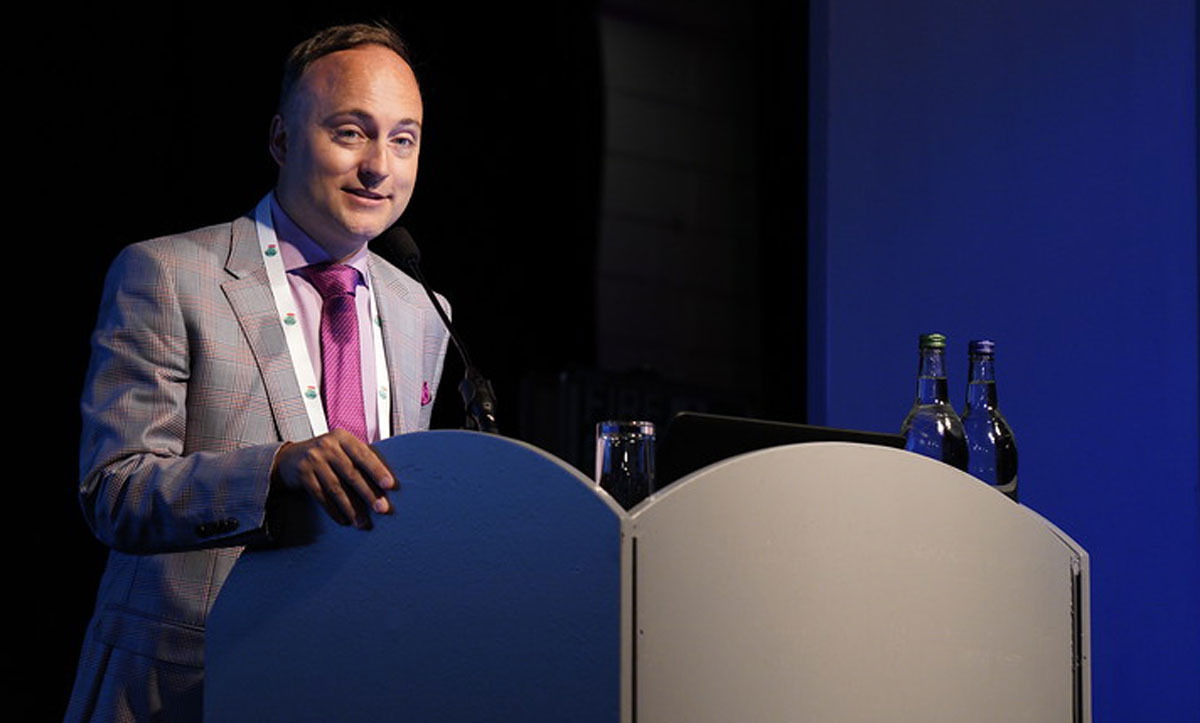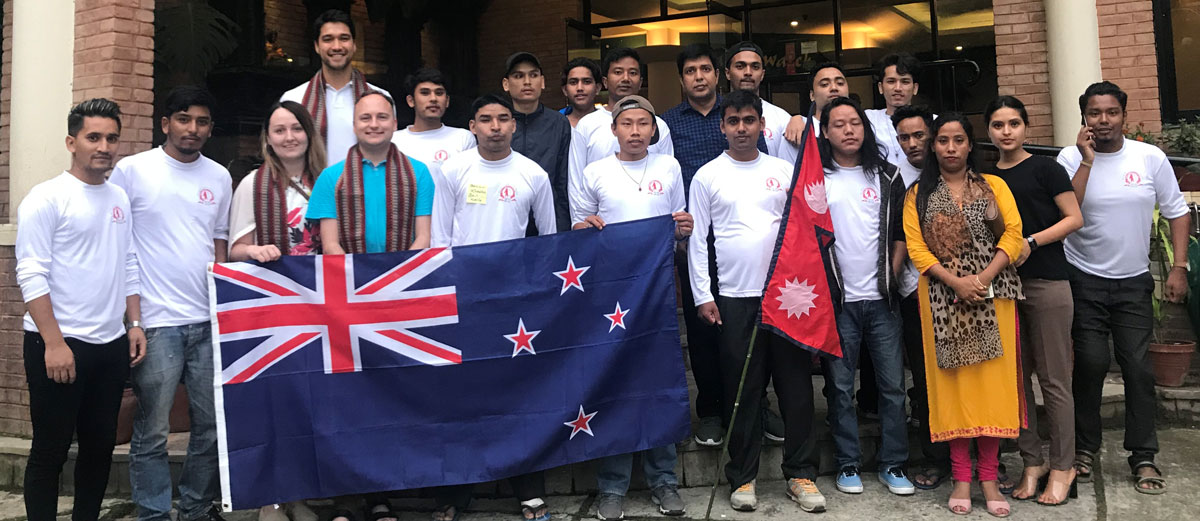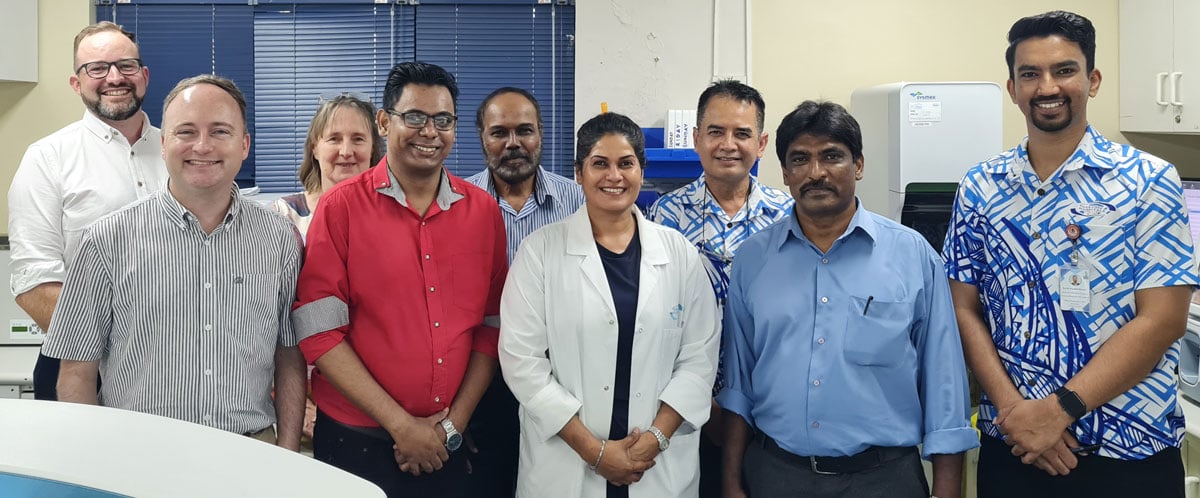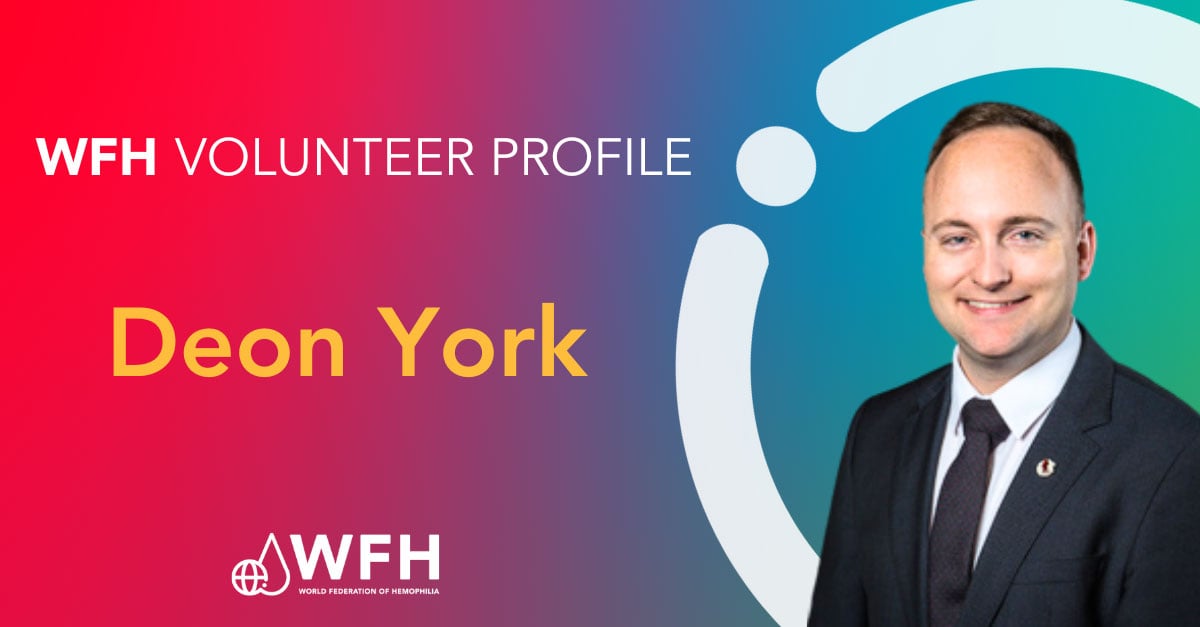Today, we are profiling a volunteer who has generously given—and continues to give his time to the global inherited bleeding disorders community. Read on to hear the story of Deon York from New Zealand.
When did you first start volunteering in the bleeding disorders community and in what capacity?
I began volunteering for Haemophilia New Zealand (HNZ) in the late nineties, initially as youth delegate to the board. We were grappling with the aftermath of HIV and hepatitis C virus (HCV) blood contamination scandals. I knew the work of the WFH back then but got more formally involved in 2006.
You have been a volunteer for the WFH for some time. What has motivated you to give your time to our organization?
I was born with severe hemophilia and have dealt with several challenges related to the condition, which form the foundation of my strong belief in, and devotion to, the cause. I have often seen the contrasting realities of living with a bleeding disorder with limited or no treatment in many parts of the world. This remains unacceptable. The people I have met through this work are inspirational; it is equally motivating to see the results of reducing inequities and improving outcomes for people living with bleeding disorders around the world. You must be constantly mindful, however, of how closing one gap might increase another.
You served as a member of the WFH Board in the past. What do you value the most out of that experience?
I was the first New Zealander elected to the board in 2010 and served until 2020. I have also chaired and collaborated with numerous WFH committees. I most value the people and their unique experiences, and have learnt so much about leadership and governance from them. When working with individuals from various regions of the world, you develop valuable insight into leadership in differing circumstances and contexts, and how to work within that to achieve results together.

What has volunteering globally taught you? How have you been able to apply what you have learned locally in your role in your NMO, both as a key member in the past and in your current role?
The impact of bleeding disorders can be influenced by the resources available to a country, as well as the context and local leadership. You must be willing to adapt, grow, and be outside your comfort zone. Applying a “cookie cutter” approach to different cultures or countries will seldom yield a sustainable outcome. Witnessing improvements with limited resources constantly drives me to ponder how we can achieve more and go further with our resources in New Zealand. This really sums up my mandate now as chief executive for HNZ. We are quite fortunate to have adequate treatment and care here in New Zealand, but there is always much we can learn from the global community.

You were the recipient of the International Frank Schnabel Award in 2024. What was it like and why do you think this award was given to you?
When I heard my name, I was in total shock and disbelief; I was completely speechless, which is surprising to those who know me. I have been mentored by many outstanding leaders around the world who have achieved incredible feats, so it was a real honour to receive this award, which is truly appreciated. I attribute receiving this award to putting in the hard work, paying attention to the details, and persevering through challenges. This award is also testament to the support from many inspirational mentors, my family, and my own bleeding disorders community.
What advice do you have for anyone who might be thinking about volunteering with the WFH or with their NMO?
First, take a step back, observe, and then decide where your skills best fit. If you stay true to your purpose and to supporting others in theirs, you can make a difference. The WFH needs volunteers, local NMOs need volunteers; we all have something to offer.
Collaboration has become increasingly essential, which has frequently led to a focus on commonalities, for instance, common goals, issues, and solutions. We should also respect differences and nuances that exist in cultures, regions, and countries as they are often key to achieving sustainable outcomes.
Our connections run deep, and our shared history binds us together. Having a bleeding disorder is not a choice, nor is your country of birth. No matter where you are born or who you are, you should have access to equitable treatment and care.
Read about more WFH volunteers
To find out more about volunteering with the WFH, click here. To read about other WFH volunteers who have had an impact on our community, see below:
- To read the story of Sukesh Nair, MD (India), a former WFH committee chair, click here
- To read the story of Mary Byrne, a laboratory scientist from Ireland, click here

Become a WFH Global Champion
WFH Global Champions are committed and passionate donors on a mission to improve and sustain care for people with inherited bleeding disorders around the globe. Every month as a Global Champion, you will receive a reminder of how your gift is impacting our global community. This will include stories, photos and videos that will bring you behind the scenes and show you how WFH healthcare development programs are changing the lives of people with bleeding disorders around the world. Find out more about becoming a WFH Global Champion here.













